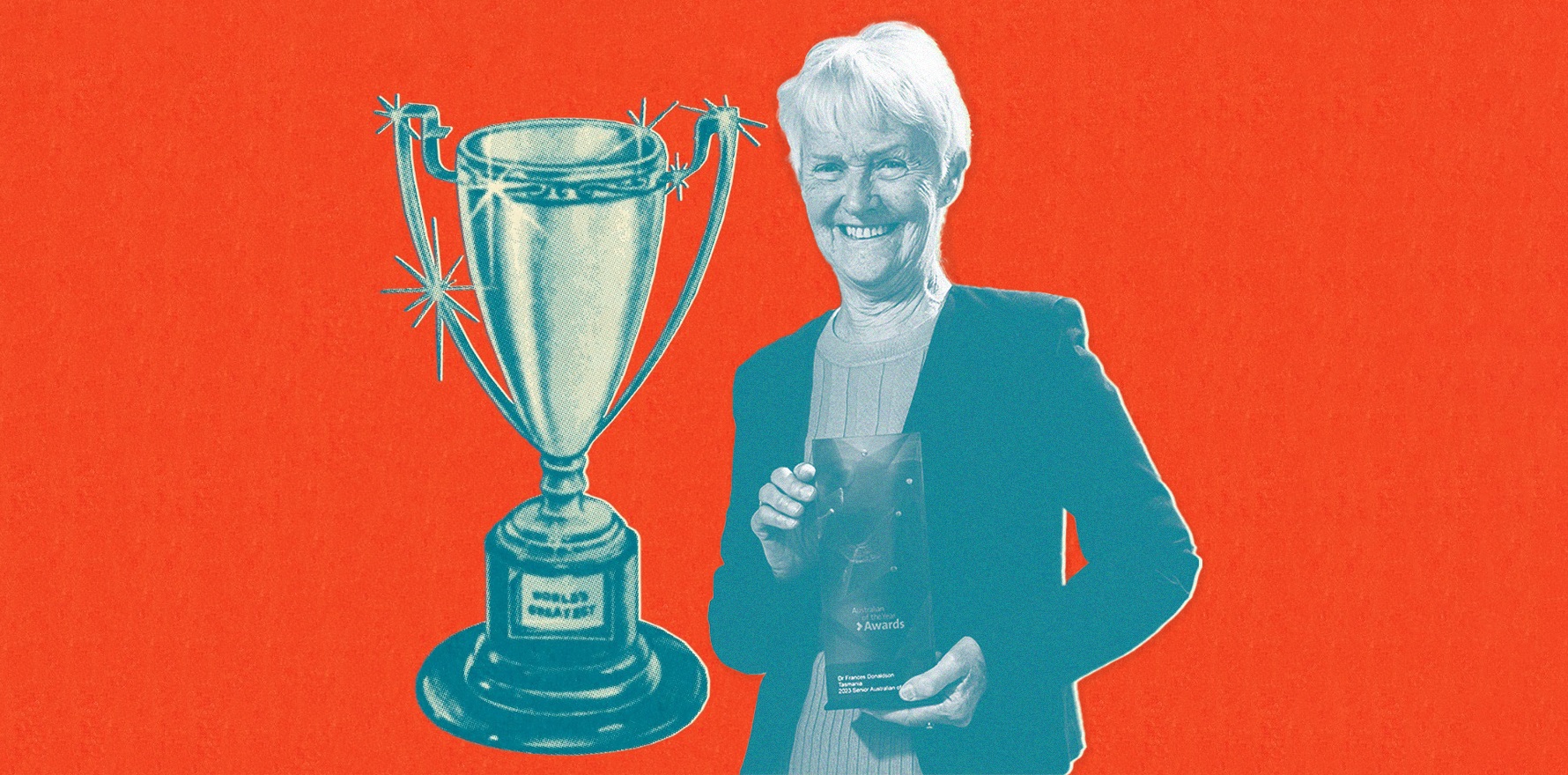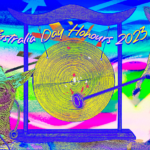Senior Tasmanian of the Year Dr Frances Donaldson, former nurse and prison GP, kept working in 2020 to oversee at-home covid care.
Tasmanian Senior Australian of the Year for 2023 Dr Frances Donaldson went into healthcare because she wanted to be at the coalface.
Starting out as a trainee nurse at the Royal Hobart Hospital in 1959, her journey into medicine wasn’t traditional.
“I did three nursing certificates and a diploma in nursing education and nursing administration, and I went up the ladder and was director of nursing,” she told The Medical Republic.
“That’s when I realised that the further you get up the nursing tree, the further you get away from the patient.
“I thought ‘I wonder if they would let me into the University of Tasmania?’”
To her surprise, they did.
In 1982 Dr Donaldson became the first female nurse in the state to qualify as a doctor.
Her most recent role has been with Tasmania’s COVID@homeplus service, which has overseen around 33,000 covid patients in a hospital-in-the-home capacity.
Now 81, Dr Donaldson plans to use her time in Canberra this week to advocate for more accessible electronic medical communication, which has become a passion over the course of the pandemic.
“I hadn’t realised [how inaccessible online medicine is] until I was faced with trying to cope with people – older people, but also younger people … who couldn’t even work a smartphone, let alone cope with people ringing them up,” she said.
“And it’s really nice when you can do a videolink with them, but sometimes they would have their phone pointing up their nose or at the ceiling.”
Even trying to find an appointment through the various booking vendors, she said, can be a challenge for some people.
Looking up a patient’s nose via videolink isn’t just bad for rapport; Dr Donaldson misses the smaller details she could pick up in face-to-face appointments.
“A lot of these older patients that I care for virtually, I’d love to be able to look at them and say, ‘now, you are sick’, because you know by looking at someone whether they will deteriorate,” she said.
Treating patients who find themselves at the fringes of society has been a recurring pattern in Dr Donaldson’s career.
For 12 years, she worked as a doctor at Tasmania’s correctional centres, which she described as “pure general practice”.
“In Tasmania, you get excellent healthcare in prison,” she said. “But when you come out, nobody wants to know you.”
Because of the stigma facing people recently released from prison, Dr Donaldson said, some of her patients were slightly better off while incarcerated.
“If we could have better rehabilitation, we wouldn’t have [as many people] going back into prison,” she said.
“And often they go back into prison so they can get three meals a day, a warm place to live and some medical care.”
Through the 2010s, Dr Donaldson was able to see the impact of new hepatitis C medications first-hand.
“Certainly, at one stage, we didn’t have any treatment,” she said. “Then we had one treatment, and that used to bowl them over [with] injections and tablets. Now, of course, it’s a couple of pills a day.”
Once released, Dr Donaldson said her former patients often had trouble getting drug and alcohol treatment or finding a program that could meet their needs because of their background.
“I see lots of them around the town now, homeless and lost.”
Two other doctors received state awards for Australian of the Year: Victorian paediatricians Dr Angraj Khillan and Professor Frank Oberklaid.
Also in the medical space were palliative care researcher Professor Samar Aoun and former palliative care nurse Teresa Plane.
They received WA Australian of the Year and NSW Senior Australian of the Year respectively.
Image credit: Salty Dingo



